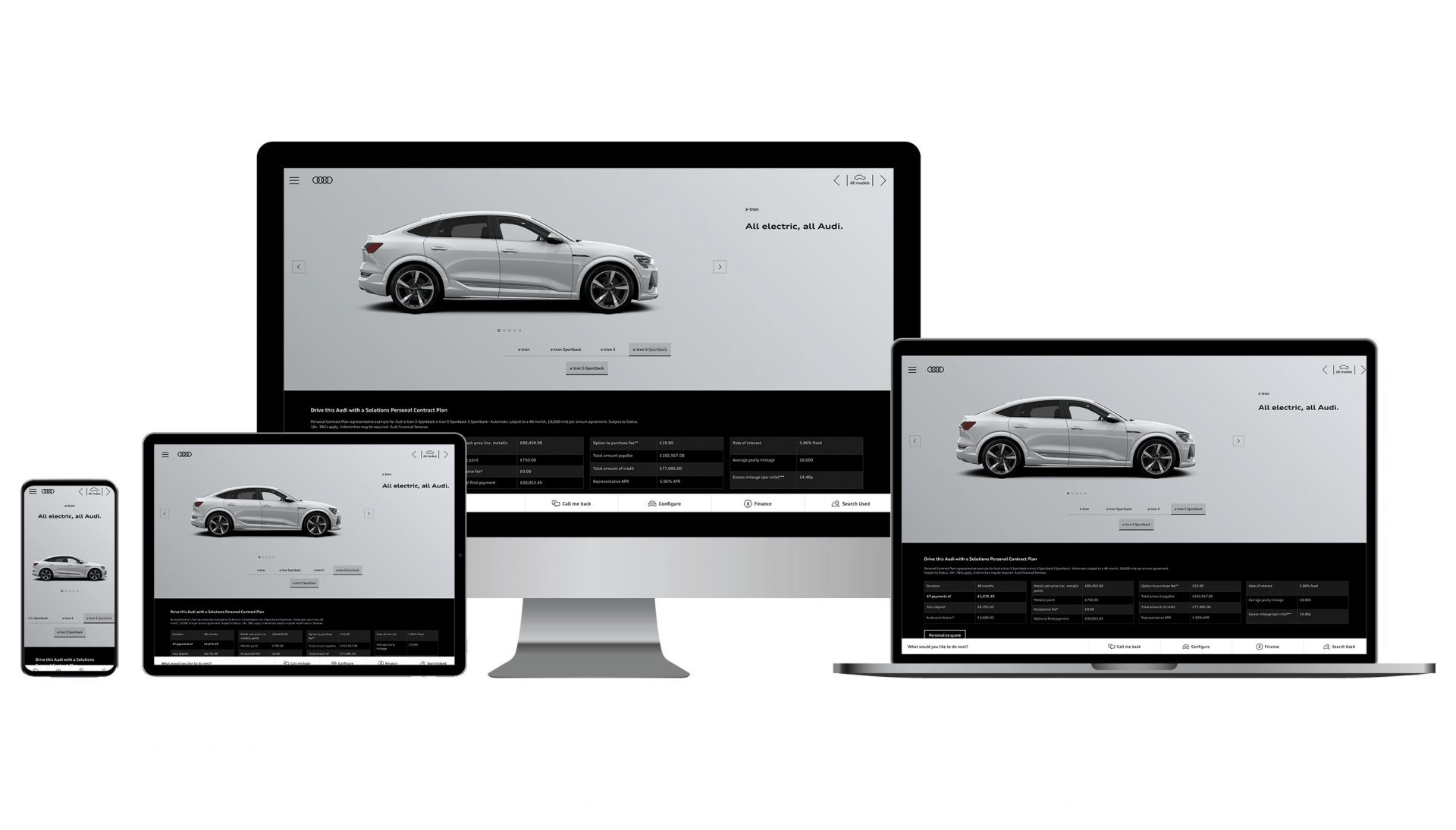Tesla remains the global champion, and in the American market is followed by Jeep and Cadillac in BearingPoint’s latest new car online sales assessment in Europe, the USA, and China. The New Car Online Sales 2023 study shows that over 70% of automotive OEMs now offer a seamless online car sales experience.
Management and technology consultancy BearingPoint’s latest study on the state of new car online sales shows that the transformation of online car sales has been profound compared to its initial study from 2021, with more than 70% of all assessed brands now allowing customers to complete the sales process online.
While Tesla remains the global leader, competitors are riding its rear bumper. “Two German OEMs, Mercedes-Benz and BMW, are close behind, with Mercedes-Benz scoring the highest after Tesla with its German online shop. However, the online shops of Mercedes-Benz and BMW only score high in Germany: their stores in other European countries are considerably different. Our study, which analyzed online stores in Europe, the USA, and China, shows that an OEM’s best performance is generally in its domestic market, except for Tesla, which had the highest score in all markets and regions”, said Christoph Landgrebe, Partner at BearingPoint.
Learning from the best – Online Sales Awards 2023
Polestar continues to be the biggest challenger globally to Tesla in offering a seamless customer journey. Both brands follow the same business model with a high customer experience in their showrooms and direct sales to customers without dealers involved. In the US, Tesla tops the list of OEMs, followed by Jeep and Cadillac, tied for second place with the same maturity score, and the e-mobility brand Lucid with the third-highest maturity score. The US market still trails most European markets regarding the number of online shops providing a seamless customer journey and the average maturity score – 24 out of 51.
“We’ve seen a fundamental and sustainable shift in car buying,” said Scott Glenn, BearingPoint US Partner, and leader of US CIO Advisory Group. “Original Equipment Manufacturers (OEM) have made considerable efforts in e-commerce and digital services, to optimize a positive customer experience throughout all three phases of the customer journey, from pre-sales, sales and handover entire sales process.”
The US represents 19% of new car sales, with China holding the top spot (33 % of global car sales in 2022), and Europe following (16 %).
On a global level, Tesla, Mercedes-Benz, BMW, Polestar, and Land Rover are the only brands that reached a maturity score of over 35 points in one or more markets. However, BearingPoint took a closer look at several categories of online car sales and found that there were some other leading examples. From these, the study team derived its Online Sales Awards, with, for example, Lucid (in USA) offering an exceptional user experience, and Citroen (in France) and DS (in Spain) offering highly functional and convenient online sales processes.
China leads in the number of online shops offering a seamless customer journey. In this year’s study, BearingPoint differentiated between mobile and online sales via the website – customers in the Chinese market can finish the purchase check-out on their mobile phones through WeChat or Alipay.
The UK, Germany, and France lead the way for traditional online stores in Europe, but a general trend shows the implementation of apps in the customer journey. The US market still trails most European markets in the number of online stores providing a seamless customer journey and average maturity score.
New business models and revenue streams
All markets show that over 60% of the assessed OEMs relocated touchpoints of the digital customer journey to mobile apps for a better customer experience and enabled future revenue streams in after-sales. Besides the trend of mobile sales, BearingPoint identified other emerging trends in all markets due to changing customer behavior and increased expectations.
These include innovative digital services, such as the use of virtual reality, make a significant difference. OEMs like Dacia and Porsche, that provide their customers with an interactive experience by enabling them to “virtually view” a configured vehicle before purchase and in real-time, stand out from the competition.
“While US OEMs have to follow laws that protect franchises, they are finding ways of providing a seamless user experience that allows the customer to shop on the OEM site but still have delivery facilitated through a dealership, with more sophisticated brands delivering directly to a consumer’s home,” said Glenn.
The study found that changing customer behavior and higher expectations regarding personalized product insights, touchpoints, and individualization require innovative online sales journeys for new vehicles, parts, and services. OEMs need to offer more flexibility in pricing and subscription models that focus on increasing the lifetime value of customers beyond the sales process.
“Customer experience, including online-to-offline integration, is a crucial strategic goal for many OEMs, but convincing concepts for implementation and scaling are lacking. Automotive companies need to transform their business models by not only selling cars online, but also revolutionizing their sales and after-sales processes to deliver a better customer experience.
Though efficiency pressures in retail require increasing automatization, OEMs must at the same time maintain valuable personal interactions with customers. The key will be to generate additional revenue through a broader network of partners and platforms without undermining the existing business and losing sight of the traditional offline sales”, resumes Dr. Stefan Penthin, global leader Automotive at BearingPoint.

